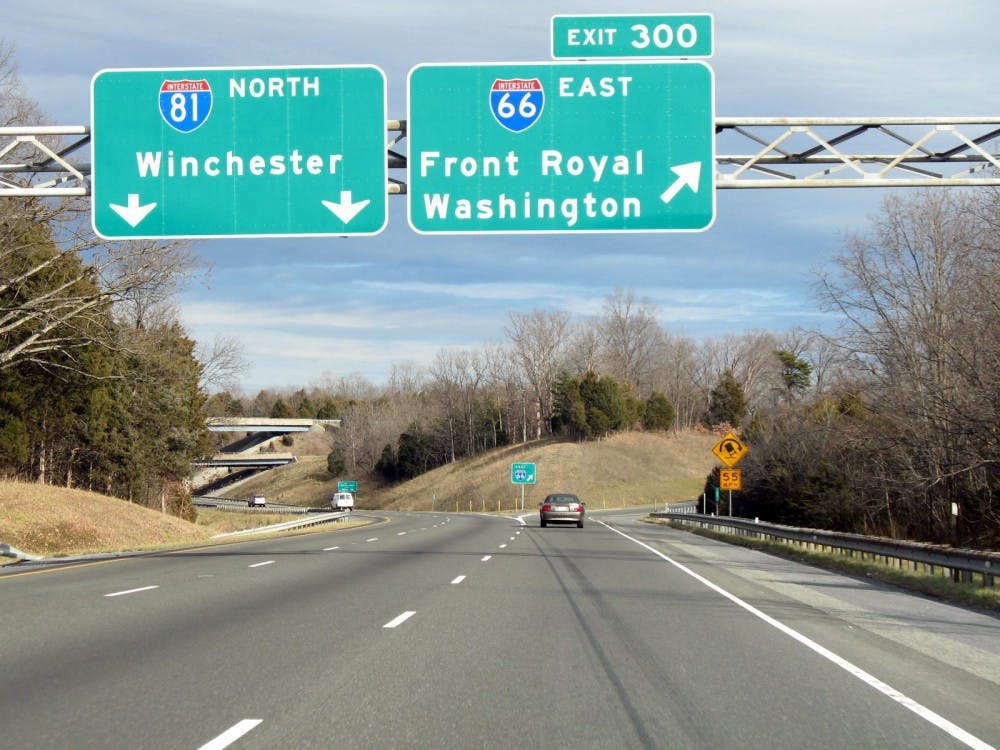The Virginia Legislature approved Gov. Ralph Northam’s amendments to a bill concerning improvements to be made to I-81 and revenue streams for those improvements last week. Originally, the bill funded necessary improvements along the 325-mile stretch of Virginia interstate by implementing a toll on long-distance travel. However, the revised version of the bill shifts the burden of costs to a 2.1 percent fuel tax along I-81, which will raise the cost of gasoline by about seven cents a gallon. The Virginia legislature’s shift to a fuel-tax to fund the improvements is an example of infrastructure policy that pushes the cost of improvements onto those who were not responsible for the degradation of that infrastructure in the first place.
I-81 in Virginia was constructed between 1957 and 1987 and has become massively more congested since that time. As a small sample of the rise in congestion, a VDOT report identified that between 1978 and 2008, the average annual daily traffic figure for a northbound section of the interstate past Wytheville has increased from 7,100 to 37,000, a 421 percent increase. As a longtime resident of the northern Shenandoah Valley area served by I-81, such data only confirms my personal conviction that the situation along I-81 is worsening. Bipartisan support for an infrastructure improvement bill for I-81 stems from the horrifying results of such congestion — 2,000 crashes on average a year, with six deaths just in Frederick County in 2017 from such crashes.
Additionally, I-81 carries a significant amount of Virginia’s truck traffic, accounting for 42 percent of the truck traffic in the state as $312 billion of goods are transported along it. Large truck crashes are among the most severe crashes on I-81 and can leave stretches of the highway closed for six or more hours. This is not only a serious inconvenience to both local and out-of-state travelers, but it is also incredibly dangerous. The original plan to raise money for improvements via tolls would primarily have affected those traveling long distances, as toll plazas would only be set up every 50 miles or so, with some one-way long distance travel uncharged, exemptions for local commuters, and opportunities for locals to buy yearly passes. Additionally, the tolls would have been phased out as soon as enough money was raised to fund the necessary improvements.This policy was the correct way to fund these improvements because the fees would only have affected those who are using the highway in the ways that are most contributing to the problems it faces.
However, the policy that has been adopted, after the opposition of trucking companies to the toll proposal, is a fuel tax that will affect many locals who have little to nothing to do with the problems of congestion facing the I-81 corridor. The fuel tax will increase the price of 15 gallons of gas by over a dollar for consumers. While this change might seem small, the popularity of gas points rewards systems, such as those offered by grocery stores like Martin’s, demonstrate just how valuable consumers feel gas price savings are. Additionally, many local consumers of gasoline don’t often drive on I-81 and certainly don’t make the frequent long trips that most contribute to congestion. As a local living near I-81, I rarely drive on it, but I fill my car up with gas near the interstate routinely. Under the implemented policy, I, like many others, will pay every time we go to the pump for improvements to infrastructure we are not using. By using taxation to fund the changes, many people who aren’t actually the source of the problems are stuck with footing the bill for improvements. By succumbing to the pressures of the trucking companies, Virginia legislators are unfairly shifting the burdens of cost to locals who should not shoulder it.
The toll proposal used initially was fairer because it assessed the burden of payment onto primarily the truck companies, which most contribute to the congestion and need for improvements. While, as its opponents identified, the tolls would raise operating costs for these companies, this increased cost would be temporary and would come with the end benefit of a major interstate better equipped to handle their traffic and even increased commercial traffic in the future. Issues of how to balance the needs of consumers and businesses while raising money for highway improvements are important. Bipartisan causes across the United States, such as New York City’s recent congestion pricing initiative, demonstrate progress is possible. Looking at the circumstances of the I-81 improvements, the Virginia legislature did not provide proper consideration to local consumers.
Katherine Viti is an Opinion Columnist for The Cavalier Daily. She can be reached at opinion@cavalierdaily.com.







